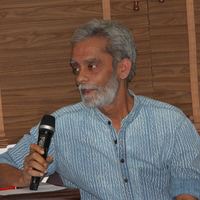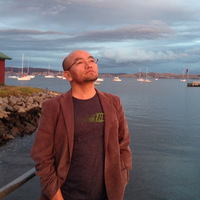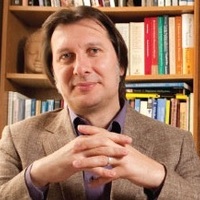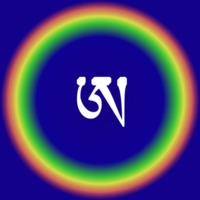
Avinash Jha
I am interested in philosophical endeavors that privilege ordinary life. I began as a physics student and spent most of my working life in documentation and librarianship. Questions of knowledge and experience have been at the center of my philosophical pursuit. Moving on from there, I wish to research imagination, action, ethics, and politics. Buddhist philosopher Dignaga has been the object of my study for several years.
less
Related Authors
Christian Coseru
College of Charleston
Robert Sharf
University of California, Berkeley
Tomaso Pignocchi
Institut Catholique de Paris
Aleksandar Uskokov
Yale University
Matthew Z Vale
Boston College
Jed Forman
Simpson College
Laura P Guerrero
College of William and Mary
Michael Radich
Universität Heidelberg
InterestsView All (13)










Uploads
Papers by Avinash Jha
In this paper, we wish to explore the significance of this claim of experience with the help of Dignāga’s theory of pramāṇa. Dignāga’s theory of Pramāṇa is a philosophical theory about the sources of knowledge. These sources of knowledge are called pramāṇas and the question of knowledge in Indian philosophical theories is posed in terms of the nature and number of pramāṇas. Experience as a source of knowledge is called the pratyakṣa pramāṇa which is usually translated as ‘perception’.
Perception or pratyakṣa has a special place in Pramāṇa theories. While pramāṇa theories differ from each other, they all accept Pratyakṣa pramāṇa. We account for this feature of Pramāṇa theories as connected to their acceptance of the cognitive claim that experience makes on us. In modern philosophy, experience’s claim of disclosing reality is usually not recognised as a cognitive claim that experience makes on us, but as an implicit judgment, belief, or assumption which we attach to experience. Experience merely yields a phenomenal presence without any claim of representation. This difference between the two philosophical traditions results in diverging theorisation of knowledge and could possibly form the basis of a fruitful dialogue.
In Dignāga’s theory of pramāṇa, conceptual experience is nonconceptual experience breaking out in expression in the form of thought, language, and action. This outbreak of meaning ‘covers’ the truth of nonconceptual perception and constitutes an ‘image’. This act of imagination is conditioned by the already existing historical world of conventional meanings. While the claim of experience is accepted by Nyāya as well, Dignāga provides a philosophical interpretation of this cognitive claim that experience makes on us.
Internet and the Explosion of Knowledge
The impact of information technology revolution has been so globally comprehensive that all the available tools of academic inquiry – media theory, cultural studies, political economy, philosophy etc. – have been employed to study them and we have a vast literature addressing this issue. What is conspicuous by its relative absence is any concerted attempt to understand the explosion in the field of knowledge and major changes in the rules of the knowledge game as a result of the Internet revolution. This is despite the fact that such an inquiry was inaugurated even before the advent of world wide web by the well-known French philosopher Lyotard in this book ‘The Postmodern Condition: A Report on Knowledge’ in the early eighties. “As the economy becomes postindustrial, the culture becomes postmodern” was the formulation Lyotard advances his enquiry from. He went on to analyze the transformations of knowledge in the wake of new information technologies. At the level of practice, however, the academic world is abuzz with the impact of the restructuring that is going on accompanying the information revolution and is plagued by enormous anxieties regarding a whole range of issues from diluting of standards to subjection of researchers to the management.
Outside the academia, however, the theme of ‘knowledge’ and ‘explosion of knowledge’ has been circulating widely in the spheres of media, economy, politics and society. ‘Knowledge society’, knowledge economy, knowledge management, dot the pages of policy documents, conferences, blogs, mailing lists etc. With the emergence of open source software and the attempts to apply its underlying philosophy to other fields, the idea of ‘knowledge commons’ has become the repository of utopian longings as well as inspiration for practical efforts to open up access to knowledge and advance cooperative models of knowledge production. In this whole discourse of ‘knowledge’ it is understood implicitly that computers and Internet are going to play a central role in the organization of knowledge globally and that they are already doing so to a great extent.
This state of affairs can be understood on the assumption that the meaning of knowledge itself has changed in the transition to the information age. That is why one can often find the argument that what has changed with the Internet is merely the communication of knowledge and the assertions to the effect that information is not knowledge. The conception of knowledge that the university is built upon is no longer the same in the realm of the Internet and in some sense information is indeed knowledge. In the proposed paper, we seek to explore the new conception of knowledge that is in the making in the era of pervasive information technology.
For example, what kind of knowledge does software constitute? Software is merely a ‘tool’, or a technique, if seen from the old perspective. But construction of software constitutes one of the most important knowledge activities for the connected world. Or, what is the knowledge that knowledge management speaks of and seeks to manage? We will try to look at the range of knowledge activities that take place in and through the Internet to explore whether the contours of a newly emerging conception of knowledge can be discerned. In the process we will attempt to clarify in what sense can the ‘digital information’ be considered to be knowledge. It is our understanding that only when armed with such a clarity on the question of the relationship of knowledge and information, can we approach the question of the significance of the ‘explosion’ of knowledge seen to be occurring with the rise of the new information technologies. We examine whether we can characterize the transition that has taken place in the conceptions of knowledge as a transition from science to information, i.e., as a transition from knowledge as representation to representations and organization of knowledge.
In this paper, we examine some of the consequences of this transition on the world of knowledge.
Drafts by Avinash Jha